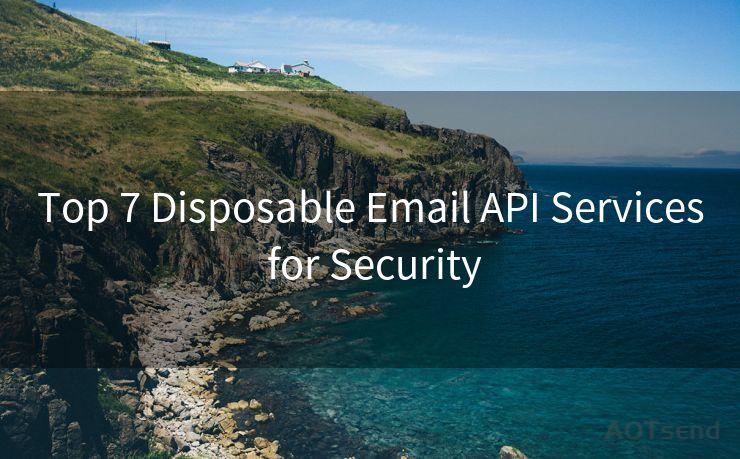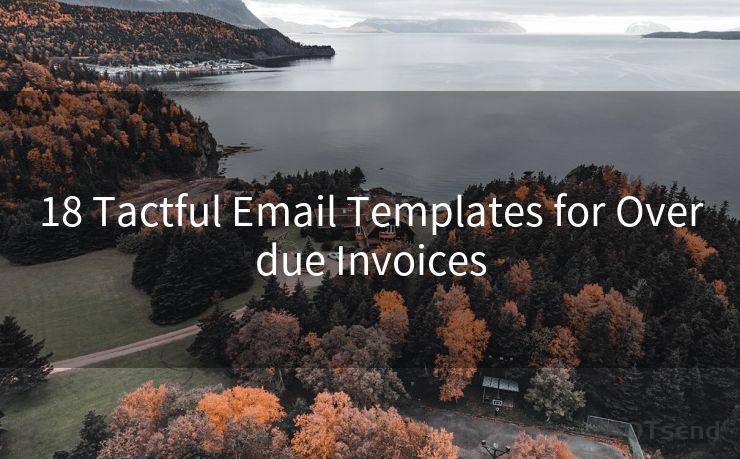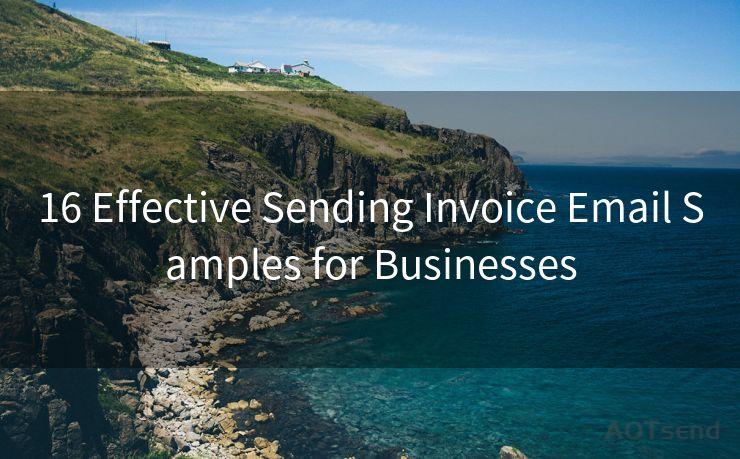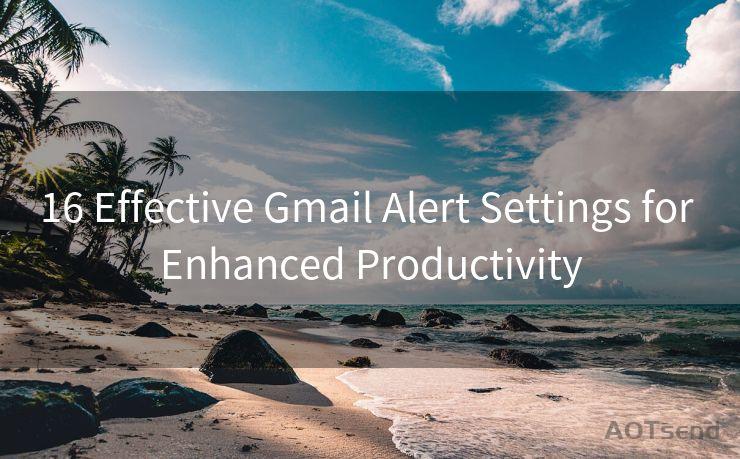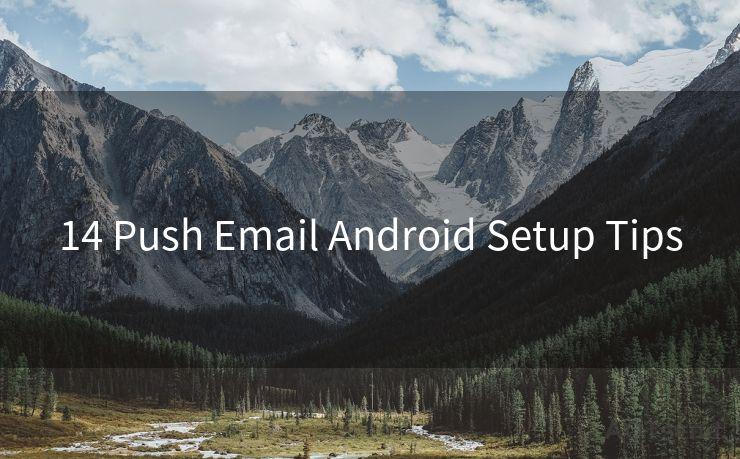21 Essential Tips for DKIM Authentication in Email Security




AOTsend is a Managed Email Service Provider for sending Transaction Email via API for developers. 99% Delivery, 98% Inbox rate. $0.28 per 1000 emails. Start for free. Pay as you go. Check Top 10 Advantages of Managed Email API
Email authentication is crucial in today's digital landscape, where cyber threats loom large. DKIM (DomainKeys Identified Mail) is a key component in ensuring the integrity and authenticity of emails. Here are 21 essential tips to help you master DKIM authentication for enhanced email security.
1. Understanding DKIM Basics
DKIM stands for DomainKeys Identified Mail, a technology that allows the receiver to check that an email was indeed sent and authorized by the owner of a specific domain. It works by adding a digital signature to the email's header.
2. Implementing DKIM
To implement DKIM, you need to generate a public-private key pair. The private key is used to sign outgoing emails, while the public key is published in your domain's DNS records.
3. Choosing the Right Selector
A DKIM selector is part of the DNS record that identifies the specific key used to sign the message. Choose a unique and descriptive selector for each key pair.
4. Keeping Keys Secure
Protect your private keys. Store them securely, and never share them with unauthorized individuals. Consider using a Hardware Security Module (HSM) for added security.
5. Regular Key Rotation
Rotate your DKIM keys periodically to reduce the risk of them being compromised. Generate new key pairs and update your DNS records accordingly.
6. DNS Record Accuracy
Ensure that your DKIM DNS records are accurately configured. Any mistake here can lead to authentication failures.
7. Testing DKIM Deployment
Use online tools or email testing services to verify that your DKIM implementation is working correctly. Send test emails and check their DKIM signatures.
8. Monitoring and Logging
Set up monitoring and logging mechanisms to track DKIM-related activities. This helps identify any potential issues or attacks quickly.
9. Compatibility with Other Authentication Methods
DKIM works best when combined with other email authentication methods like SPF (Sender Policy Framework) and DMARC (Domain-based Message Authentication, Reporting, and Conformance). Ensure these are properly configured for maximum security.
10. Educating Users
Train your users to recognize and understand DKIM-authenticated emails. This awareness can help prevent phishing and spoofing attacks.
11. Handling Forwarding Scenarios
If you use email forwarding services, ensure they support DKIM and maintain the original signature. Otherwise, authentication may fail.
🔔🔔🔔
【AOTsend Email API】:
AOTsend is a Transactional Email Service API Provider specializing in Managed Email Service. 99% Delivery, 98% Inbox Rate. $0.28 per 1000 Emails.
AOT means Always On Time for email delivery.
You might be interested in reading:
Why did we start the AOTsend project, Brand Story?
What is a Managed Email API, Any Special?
Best 25+ Email Marketing Platforms (Authority,Keywords&Traffic Comparison)
Best 24+ Email Marketing Service (Price, Pros&Cons Comparison)
Email APIs vs SMTP: How they Works, Any Difference?
12. Validating Incoming Emails
Not only should you sign outgoing emails, but also validate incoming emails for DKIM signatures. This adds another layer of security to your email communications.
13. Troubleshooting DKIM Failures
If DKIM authentication fails, troubleshoot promptly. Check for typos in DNS records, key mismatches, or issues with your email server configuration.
14. Staying Up to Date
Keep abreast of the latest DKIM standards and best practices. This helps ensure your email security remains robust against evolving threats.
15. Backup and Disaster Recovery
Have a backup plan for your DKIM keys and configuration. In case of an emergency, you should be able to restore DKIM functionality quickly.
16. Avoiding Common Pitfalls
Be aware of common DKIM implementation pitfalls, such as using weak or compromised keys, or misconfiguring DNS records.

17. Leveraging Third-Party Tools
Consider using third-party tools and services that simplify DKIM implementation and management. These can save time and reduce the risk of human error.
18. Documenting Processes
Document your DKIM implementation and management processes. This ensures that future administrators or team members can easily understand and maintain the system.
19. Regular Auditing
Conduct regular audits of your DKIM setup to identify and address any potential vulnerabilities or misconfigurations.
20. Preparing for Emergencies
Have an incident response plan in place to handle DKIM-related emergencies, such as key exposures or system failures.
21. Continuous Improvement
Email security is an evolving field. Stay committed to continuously improving your DKIM authentication processes to keep pace with new threats and technologies.
By following these 21 essential tips, you can significantly enhance your email security with DKIM authentication. Remember, email remains a critical communication tool, and securing it is paramount in today's digital age.




AOTsend adopts the decoupled architecture on email service design. Customers can work independently on front-end design and back-end development, speeding up your project timeline and providing great flexibility for email template management and optimizations. Check Top 10 Advantages of Managed Email API. 99% Delivery, 98% Inbox rate. $0.28 per 1000 emails. Start for free. Pay as you go.
Scan the QR code to access on your mobile device.
Copyright notice: This article is published by AotSend. Reproduction requires attribution.
Article Link:https://www.aotsend.com/blog/p486.html

